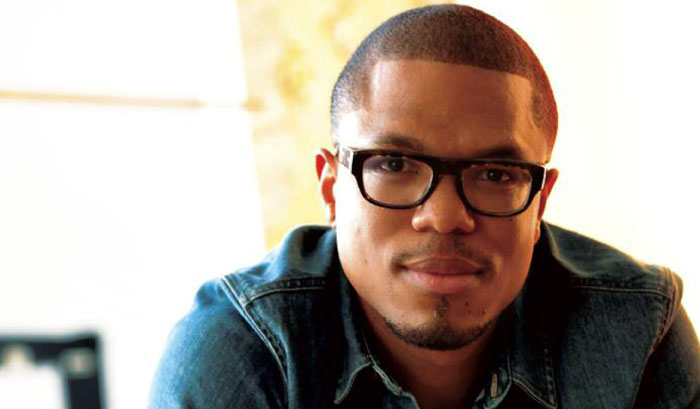


MILES ROBERTSON DIDN'T SEE IT COMING. "I got a call from a booking agent," says the New York-based keyboardist. "They said, 'There's this artist called Adele from the UK. She's getting ready to embark on a U.S. promo tour, and she's going to need the services of a keyboard player.' I said, 'Sure,' though I'd never heard of her. We played some TV dates, and one of them was Saturday Night Live, and it just happened to be the episode that Sarah Palin was on."
That show proved to be the most-watched episode of the program in 20 years, and it helped launch Adele's stateside career. The singer went on to win multiple GRAMMYS®, top the Billboard charts, and thrill ever-larger audiences with her dramatic R&B-tinged vocalizing. And now Robertson not only accompanies the singer on tour, but also supervises Adele's band as her music director.
Before working with Adele, Miles had performed with rappers Fabolous and Sean Kingston, smooth jazz saxophonist Najee, and dancehall/calypso artist Rupee, who like Robertson, hails from the Caribbean island nation of Barbados. "I've been touring for seven or eight years," he says, "but Adele is definitely the most high-profile work I've done."

Miles started playing piano at age two. He was trained by his mother, one of Barbados's leading music teachers and a graduate of London's Royal Academy of Music. "She had a grand piano in the living room, and three or four uprights in the studio. I was around the piano all the time, and I basically grew up playing classical music." But the young musician also displayed an affinity for playing by ear, picking up tunes from the radio and television.
"I think I was a little rebellious," muses Miles. "I'd sometimes think classical music was a bit sterile, and I didn't like having to read music. But as I got older, I began to appreciate it more. I'm still not the world's greatest sight-reader, but reading has proven to be a valuable skill. Developing technique through repetition and understanding the nature of the piano were also great benefits. I also learned from my mother's discipline and dedication. She would spend five or six months preparing for a concert."
Having grown up literally surrounded by pianos, it's no surprise that Miles is exceedingly discerning when it comes to the sound of the instrument. "I've always loved the natural sound of the piano," he says. "The harmonics, the hammers, the strings. A lot of digital pianos mimic the general sound of the piano, but they're too bright, and I was never drawn to any of them until the Yamaha Motif came out. That's what I use with Adele, and it's working great. The Motif's organ, electric piano, string, and bell sounds are every bit as good as the pianos. There's really no need to have any other keyboard." Robertson's stage rig includes a Motif XF8 and XF7 housed in an upright piano shell.
The dynamic range of the Motif's piano sounds is particularly significant for Miles. "The majority of Adele's songs require me to have a very gentle piano attack," he observes. "And the Motif gets very, very close to the real thing."
But there's more to Robertson's gig than keyboard skills. For example, to prepare for the shows supporting Adele's latest release, 21, he had to work with the album's producers and programmers to adapt album parts for live performance. "We had to go in and format this, edit that, add a segue here, take a part out there."
And then there are the psychological aspects of performing-such as communicating the emotion of the artist's songs in the most moving and honest fashion. "You have to have the right degree of aggression," Robertson notes. "The type of aggression I'd bring to, say, a Fabolous gig, wouldn't be appropriate for an Adele gig. But even when I play her song 'Someone Like You,' which is just vocals and piano, and I'm barely touching the keys, it still has intensity."
There's really no need to have any other keyboard.
Increasingly, Miles takes his cues from a song's lyrics. "When I was younger," he says, "I was very concerned about notes. But as I mature, I think more about the feeling behind a song. I even took a lyric-writing course the summer before last, and that really helped me understand the approach of the songwriter. Is the song about love? About heartache? About robbing somebody? As I've played with more artists over the last couple of years, I've really come to appreciate that more. At the end of the day, it's my job to support the artist, so that's what I focus on as a musician."
(Photography Credit: Rob Shanahan)
























